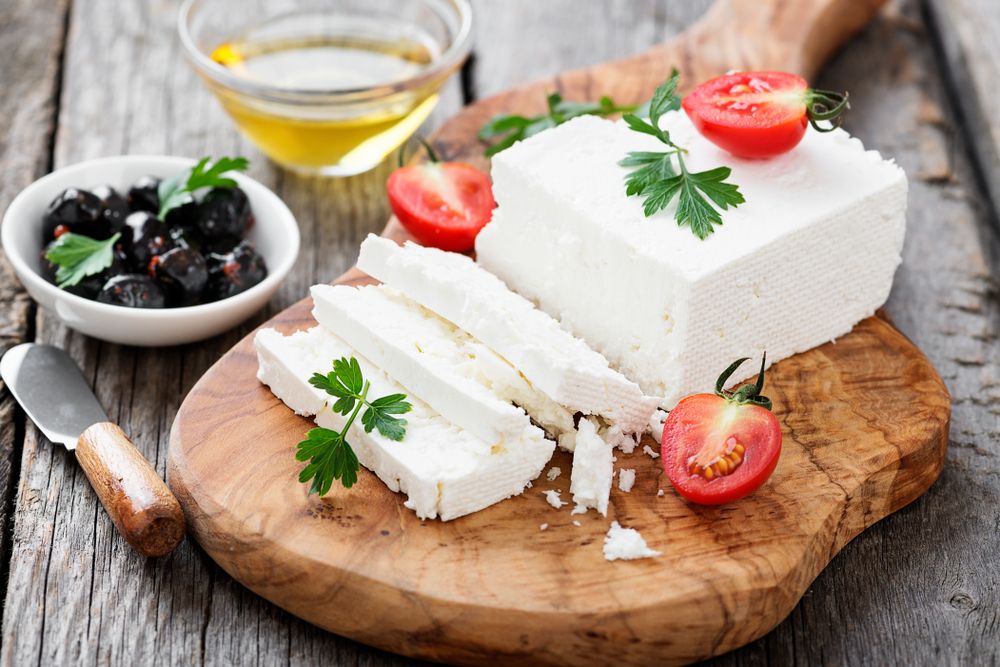
You’ve likely heard the phrase, “Everything in moderation,” and it applies to all foods—including cheese. As a dietitian, a member of a family that once owned a cheese shop in New York City, and an avid cheese lover myself, I understand how hard it is to resist this popular dairy treat. However, because many cheeses are high in saturated fat and sodium, they might not be ideal for individuals managing high cholesterol.
According to the Centers for Disease Control and Prevention, about one in 10 Americans has high cholesterol, a common condition that can increase the risk of heart disease and stroke. However, having high cholesterol doesn’t mean you have to cut cheese out of your diet entirely.
The Link Between Cheese and Cholesterol
Cholesterol is a fat-like substance necessary for various bodily functions and is found in every cell of your body. While cholesterol is essential, an excess—especially of low-density lipoprotein (LDL), commonly known as "bad" cholesterol—can increase the risk of heart disease. Factors like diet, physical inactivity, and genetics all influence cholesterol levels, particularly when it comes to consuming foods high in saturated fat, such as cheese.
Saturated fat is known to elevate LDL cholesterol levels. As a result, the Dietary Guidelines for Americans suggest keeping saturated fat intake under 10% of daily calories, which is about 20 grams per day. Although cheese also contains dietary cholesterol, a comprehensive 2022 review published in the journal Nutrients found no direct connection between dietary cholesterol and blood cholesterol levels. While earlier federal guidelines recommended a limit of 300 milligrams per day, the current advice is to keep dietary cholesterol "as low as possible" without sacrificing overall nutritional balance.
Since foods high in saturated fat, like cheese, often contain dietary cholesterol, opting for low-fat cheese varieties can be a wise choice for those managing their cholesterol levels.
Can You Eat Cheese If You Have High Cholesterol?
Certain cheeses, such as Parmesan or blue cheese, are higher in fat and cholesterol per ounce. The upside is that these cheeses are rich in flavor, so even a small amount—like a tablespoon of shredded or crumbled cheese—can add a burst of taste to your dishes.
For those who want to enjoy cheese more often while keeping cholesterol in check, there are lower-fat options recommended by dietitians. Below, we highlight five cheeses that are more suitable for those watching their cholesterol, along with tips for enjoying them in a heart-healthy way.
Mozzarella, Part-Skim
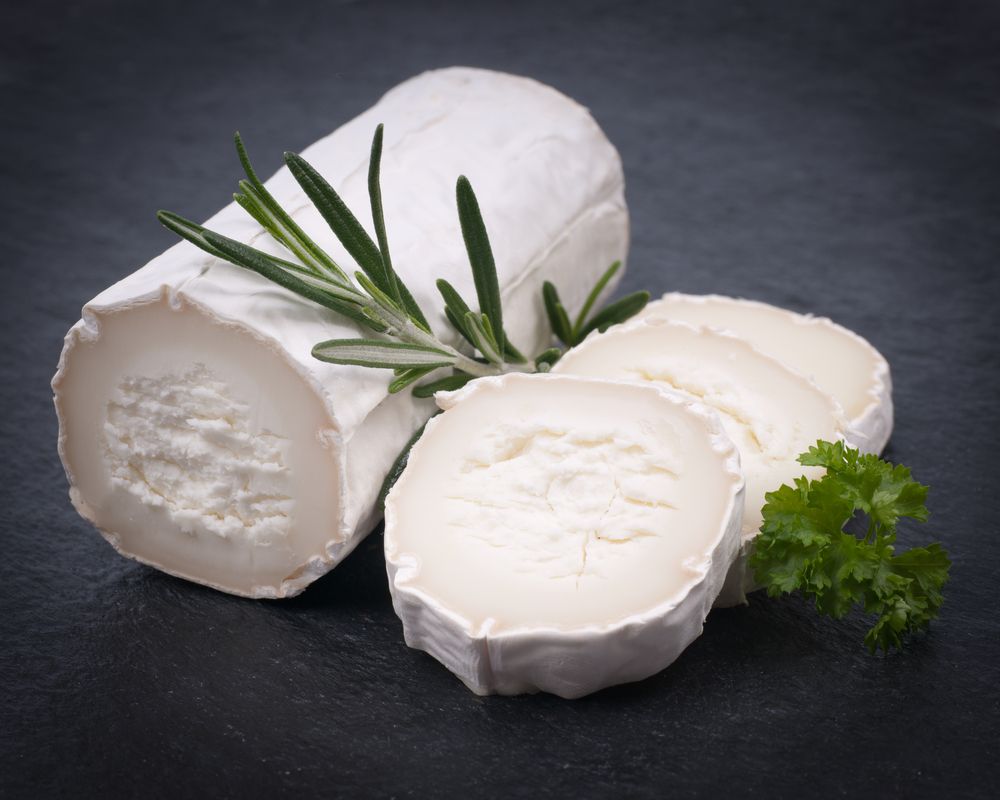
Nutrition (Per 1 ounce, part-skim):
- Calories: 70
- Fat: 4.5 g (Saturated Fat: 3 g)
- Sodium: 175 mg
- Cholesterol: 18 mg
- Carbs: <1 g (Fiber: 0 g, Sugar: 0 g)
- Protein: 7 g
"I always tell my clients of all ages that cheese is a fantastic addition to the diet, providing protein to support muscle mass along with calcium and vitamin D to build and maintain bone health across the lifespan," says Jim White, RDN, ACSM EX-P, and owner of Jim White Fitness and Nutrition Studios.
White’s top pick is mozzarella, a cheese that’s naturally lower in saturated fat, with just 3 grams per serving, and contains only 18 milligrams of cholesterol—especially low compared to many other cheeses.
Cheryl Mussatto, MS, RD, LD, a clinical dietitian at Cotton O'Neil Cardiac Rehab in Topeka, KS, and author of The Nourished Brain, also favors mozzarella, especially the fresh, part-skim variety. Mussatto enjoys using it in Caprese salads and spinach and cheese frittatas.
Cottage Cheese
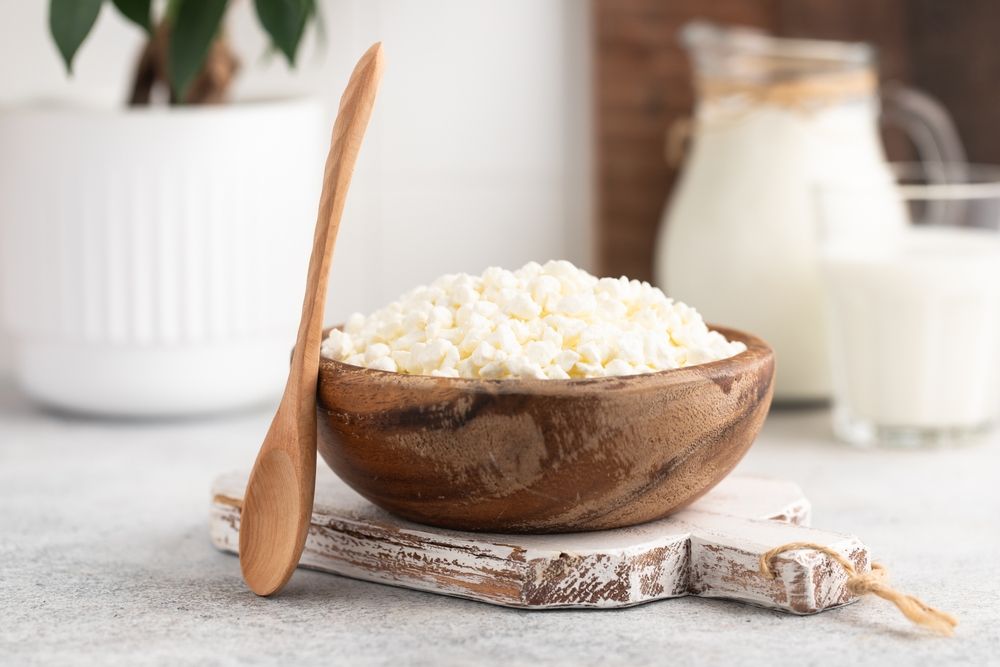
Nutrition (Per 1/2 cup, 1% low-fat):
- Calories: 80
- Fat: 1 g (Saturated Fat: 0.5 g)
- Sodium: 460 mg
- Cholesterol: 5 mg
- Carbs: 3 g (Fiber: 0 g, Sugar: 3 g)
- Protein: 14 g
"Cottage cheese is a solid choice for cardiovascular health, as it’s high in protein and lower in fat," shares Amanda Sauceda, MS, RD, owner of The Mindful Gut, LLC.
Sauceda also suggests choosing cultured cottage cheese to enjoy the benefits of live, active cultures that support the gut microbiome, which research has linked to heart health.
Feta
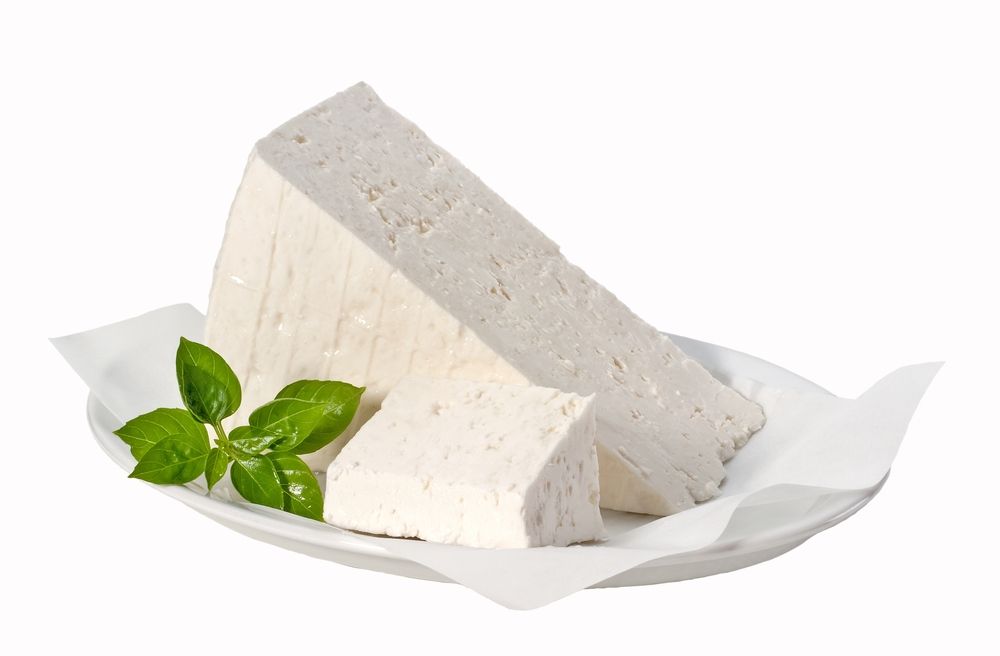
Nutrition (Per 1 ounce):
- Calories: 75
- Fat: 6 g (Saturated Fat: 3.5 g)
- Sodium: 320 mg
- Cholesterol: 25 mg
- Carbs: 1 g (Fiber: 0 g, Sugar: 0 g)
- Protein: 4 g
Leslie Bonci, MPH, RDN, CSSD, LDN, FAND, owner of Active Eating Advice by Leslie Bonci, recommends feta cheese as it contains "only 25 milligrams of cholesterol per ounce and is lower in saturated fat (3.5 grams) compared to many other cheeses." Bonci also highlights that feta’s bold flavor means a little goes a long way, allowing you to use less while still adding a delicious touch to your dishes.
Try crumbling feta over salads, pairing it with fruit, or mixing it with fresh cherry tomatoes for a flavorful, nutrient-rich plate.
Part-Skim Ricotta
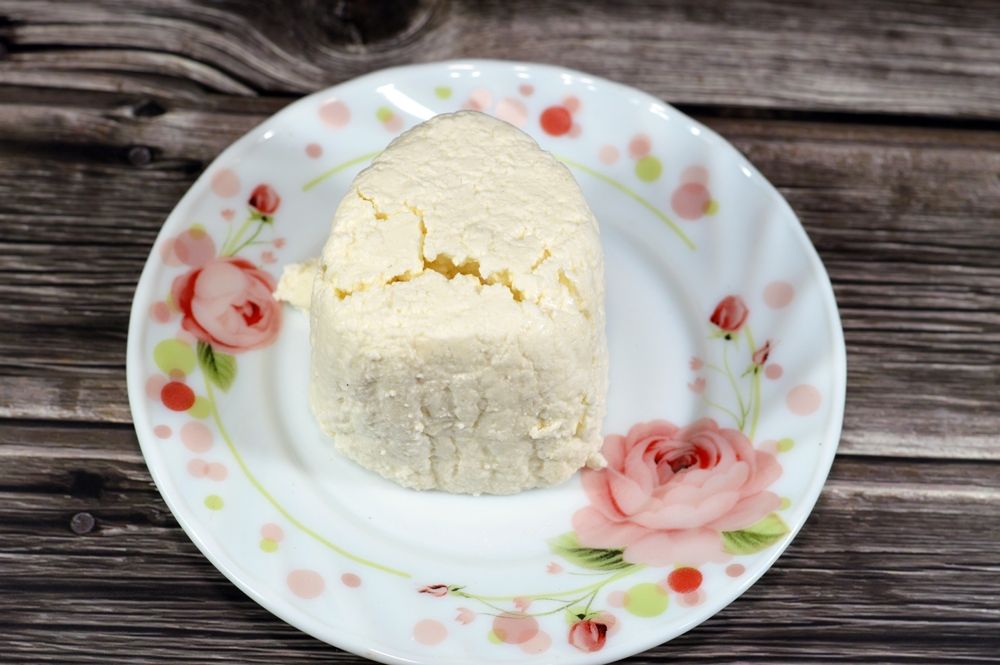
Nutrition (Per 1 ounce, part-skim):
- Calories: 40
- Fat: 2 g (Saturated Fat: 1.5 g)
- Sodium: 28 mg
- Cholesterol: 9 mg
- Carbs: 1 g (Fiber: 0 g, Sugar: 0 g)
- Protein: 3 g
Another cheese Leslie Bonci recommends is part-skim ricotta, which has "only 19 milligrams of cholesterol per 1/4 cup and 3 grams of saturated fat, making it lower than many other cheeses." Bonci explains that part-skim ricotta has a creamy texture, making it an ideal substitute for heavy cream in pasta dishes. It’s also spreadable, so you can use it in celery sticks instead of cream cheese for a protein boost with lower fat and saturated fat.
Bonci enjoys using ricotta on a ricotta board topped with vegetables and olives or whipped with berries for a delicious, creamy dessert that’s lower in saturated fat than ice cream.
String Cheese

Nutrition (Per 1 stick, part-skim mozzarella):
- Calories: 84
- Fat: 5.5 g (Saturated Fat: 3 g)
- Sodium: 200 mg
- Cholesterol: 18 mg
- Carbs: 1 g (Fiber: 0 g, Sugar: 0.5 g)
- Protein: 7 g
"Individuals with high cholesterol should aim to reduce their saturated fat intake, and one way to do this is by choosing low-fat string cheeses, like part-skim mozzarella or 2% cheddar and colby jack varieties," advises Amy Goodson, MS, RD, CSSD, LD, author of The Sports Nutrition Playbook and a member of our Medical Expert Board.
Most string cheeses offer around 70-80 calories and 5 grams of total fat (3 grams saturated) per serving, making them a great choice. Plus, they come individually packaged, helping you enjoy the right portion without going overboard.

